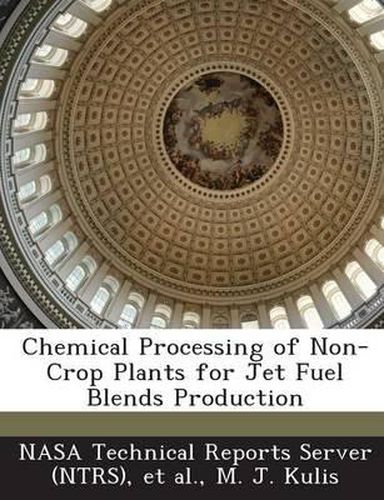Readings Newsletter
Become a Readings Member to make your shopping experience even easier.
Sign in or sign up for free!
You’re not far away from qualifying for FREE standard shipping within Australia
You’ve qualified for FREE standard shipping within Australia
The cart is loading…






The use of Biofuels has been gaining in popularity over the past few years due to their ability to reduce the dependence on fossil fuels. Biofuels as a renewable energy source can be a viable option for sustaining long-term energy needs if they are managed efficiently. We describe our initial efforts to exploit algae, halophytes and other non-crop plants to produce synthetics for fuel blends that can potentially be used as fuels for aviation and non-aerospace applications. Our efforts have been dedicated to crafting efficient extraction and refining processes in order to extract constituents from the plant materials with the ultimate goal of determining the feasibility of producing biomass-based jet fuel from the refined extract. Two extraction methods have been developed based on communition processes, and liquid-solid extraction techniques. Refining procedures such as chlorophyll removal and transesterification of triglycerides have been performed. Gas chromatography in tandem with mass spectroscopy is currently being utilized in order to qualitatively determine the individual components of the refined extract. We also briefly discuss and compare alternative methods to extract fuel-blending agents from alternative biofuels sources.
$9.00 standard shipping within Australia
FREE standard shipping within Australia for orders over $100.00
Express & International shipping calculated at checkout
The use of Biofuels has been gaining in popularity over the past few years due to their ability to reduce the dependence on fossil fuels. Biofuels as a renewable energy source can be a viable option for sustaining long-term energy needs if they are managed efficiently. We describe our initial efforts to exploit algae, halophytes and other non-crop plants to produce synthetics for fuel blends that can potentially be used as fuels for aviation and non-aerospace applications. Our efforts have been dedicated to crafting efficient extraction and refining processes in order to extract constituents from the plant materials with the ultimate goal of determining the feasibility of producing biomass-based jet fuel from the refined extract. Two extraction methods have been developed based on communition processes, and liquid-solid extraction techniques. Refining procedures such as chlorophyll removal and transesterification of triglycerides have been performed. Gas chromatography in tandem with mass spectroscopy is currently being utilized in order to qualitatively determine the individual components of the refined extract. We also briefly discuss and compare alternative methods to extract fuel-blending agents from alternative biofuels sources.